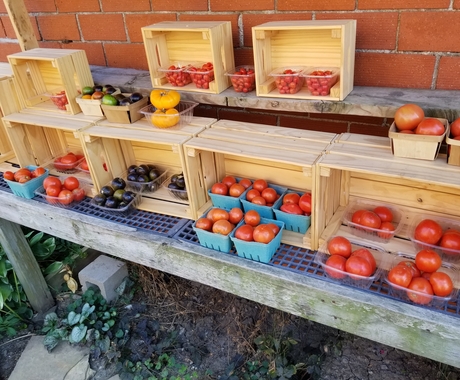By Derrik Conard, former staff member
Food insecurity and access to fresh foods, such as unprocessed meat and produce, are real concerns for rural Nebraska. As we experience the increasing cost of living and continued closure of small town grocery stores an emphasis needs to be placed on supporting local food businesses over national chains.
The U.S. Department of Agriculture (USDA) defines food insecurity as a “household-level economic and social condition of limited or uncertain access to adequate food.” Breaking that down further, food insecurity is linked strongly with household income, and how much of that income is leftover to purchase food after required expenses are paid.
According to the USDA’s Economic Research Service 10.5%, or 13.8 million people, were food insecure within the U.S. in 2020. Nebraska was in line with the national average at 10.5%, or an estimated 82,740 residents experiencing some level of food insecurity.
One aspect not often taken into consideration is the distance rural residents must travel to purchase food. With gas prices hitting an all-time high in 2022, up 6.4% from 2021, this is a challenging time for families living in a community with no grocery store. Known as a food desert because of its low access to retail locations that sell healthy and affordable food, residents in these areas may have to travel up to 40 miles to a grocery store. Not everyone is able to travel that far.
Minimizing food deserts in Nebraska is an important step in combating food insecurity. Many rural communities have lost their local grocery store over the past 20 years. In the early 2000s Nebraska had close to 1,600 food retailers. More than 1,100 of those stores have closed. Nationally, the top 20 grocery chains now account for more than 66.6% of all U.S. grocery sales, up from 42.2% during the major consolidation of the 1990s.
Having felt the impact of losing their local grocery stores the communities of Hay Springs, Lynch, and Bayard are filling the void through local food cooperatives. Also known as a food co-op, a food cooperative is a distribution location organized by its members. Decisions regarding food to stock, prices, hours of operations are all chosen by its members.
The Farm to Family Cooperative in Hay Springs opened in June 2021. Now, local residents can purchase their groceries closer to home, rather than driving several miles out of town. The co-op also seeks input from customers on what items to stock and aims to offer the best prices around.
Lynch has also followed suit by creating the Valley Foods Cooperative and Bayard will soon be home to the Bayard Grocery Store Cooperative.
Carolyn Applegate of Bayard said food insecurity is a real issue.
“Our residents currently have to travel 15 miles, one way, to the nearest grocery store, so a food co-op is much needed in Bayard,” she said. “A local grocery store that stocks fresh produce and pantry essentials is very important to keeping our community going.”
Since food cooperatives are typically not in the business of maximizing profits, they have an advantage over privately owned small grocery stores. More competitive prices with places like Walmart can help make the decision of shopping local easier. Especially if it saves you a 30-minute drive.
Food co-ops can also be high tech to alleviate the strain of hiring employees or relying on volunteers. In Evansville, Minnesota, a town of around 600 people, local food co-op members use a mobile app to unlock doors and pay for their food. This allows the store to be open 24/7 while operating with minimal manpower. Theft and vandalism were an initial concern but a $75 a year membership fee and cameras in the store help deter those issues.
As Nebraskans continue to face food insecurity, finding ways to bring back community grocery stores is an important step. Other resources such as the USDA Supplemental Nutrition Assistance Program (SNAP), National School Lunch Program, and local food banks, will also continue to play a role in making sure families can put food on the table.



